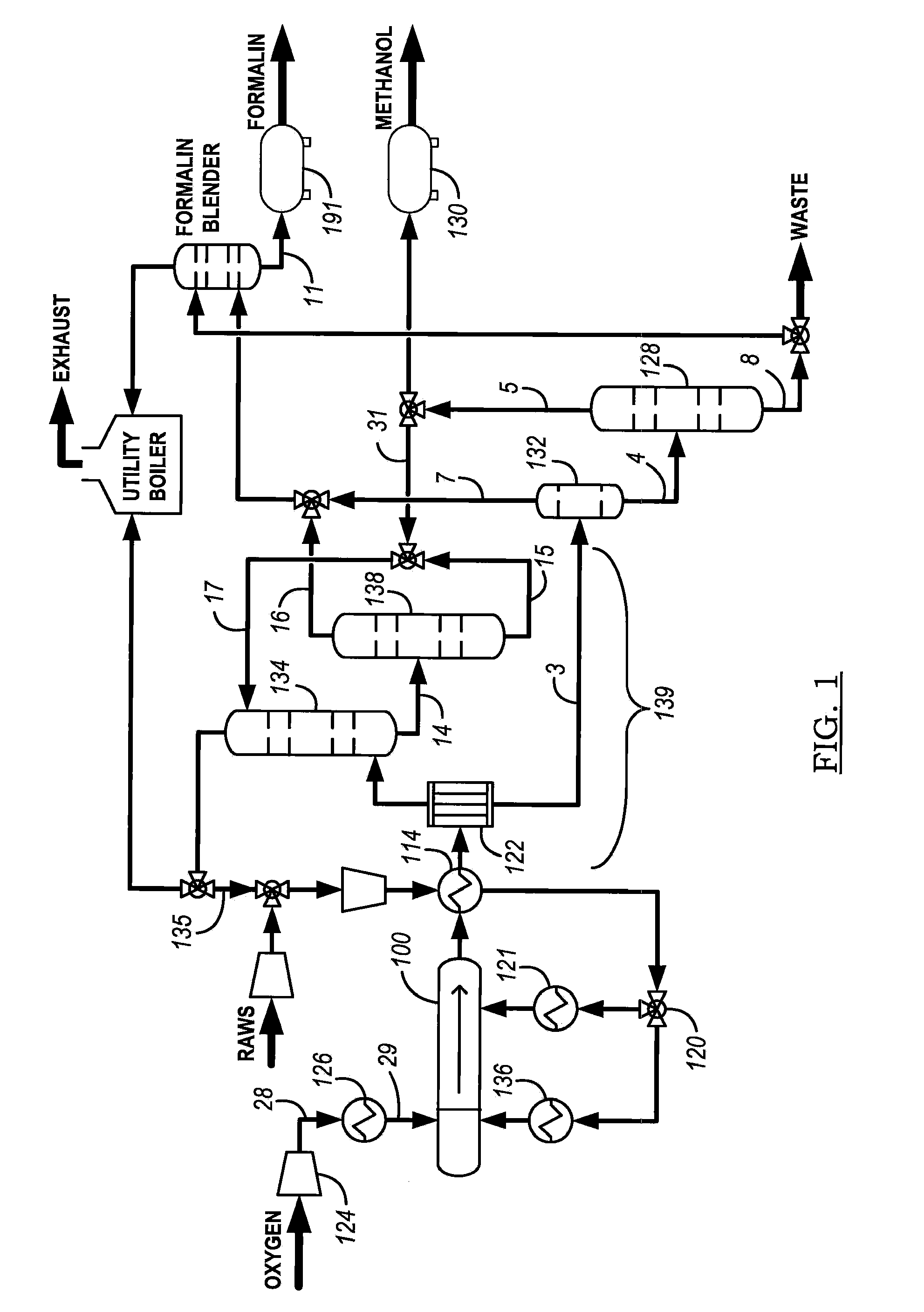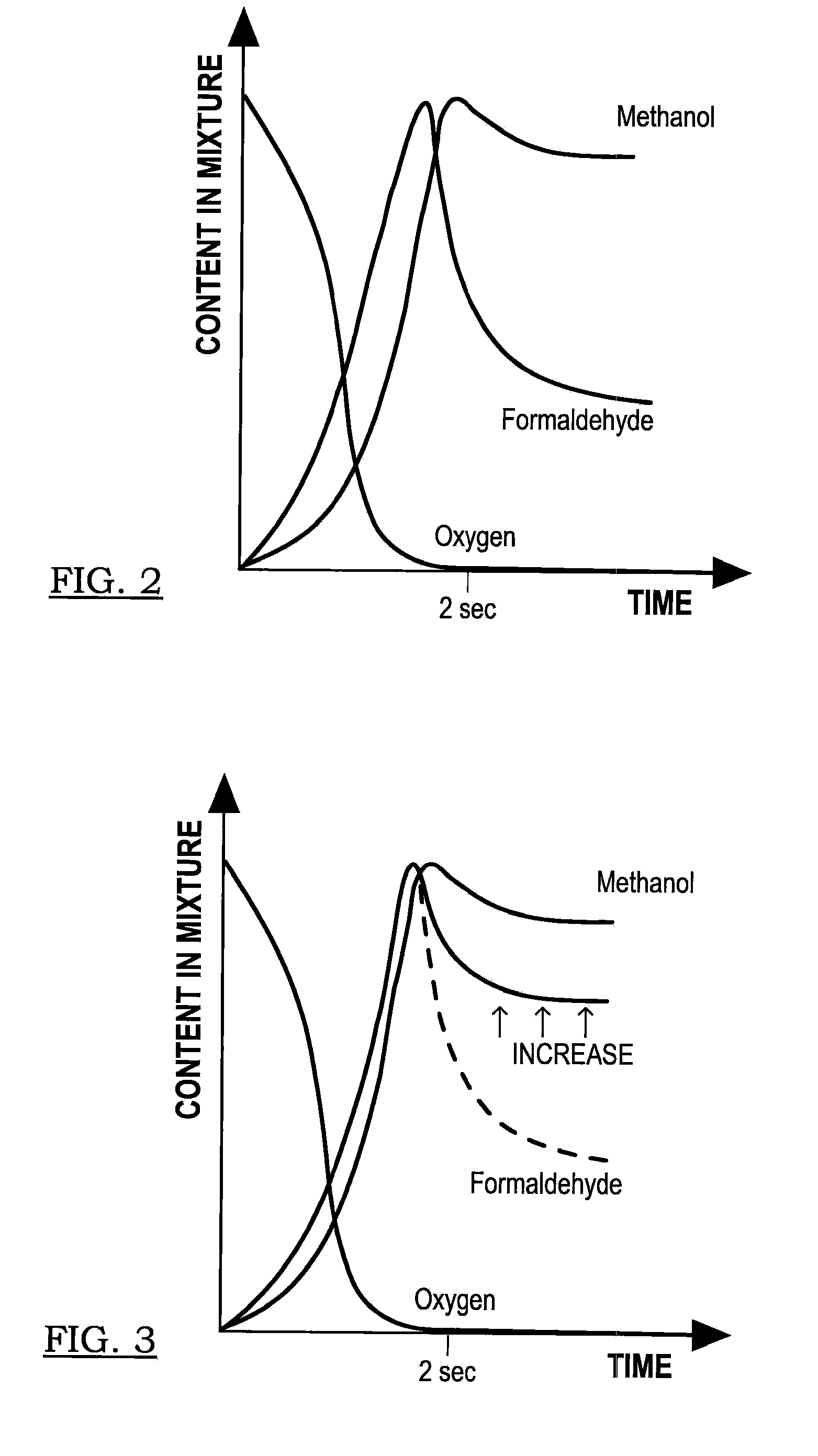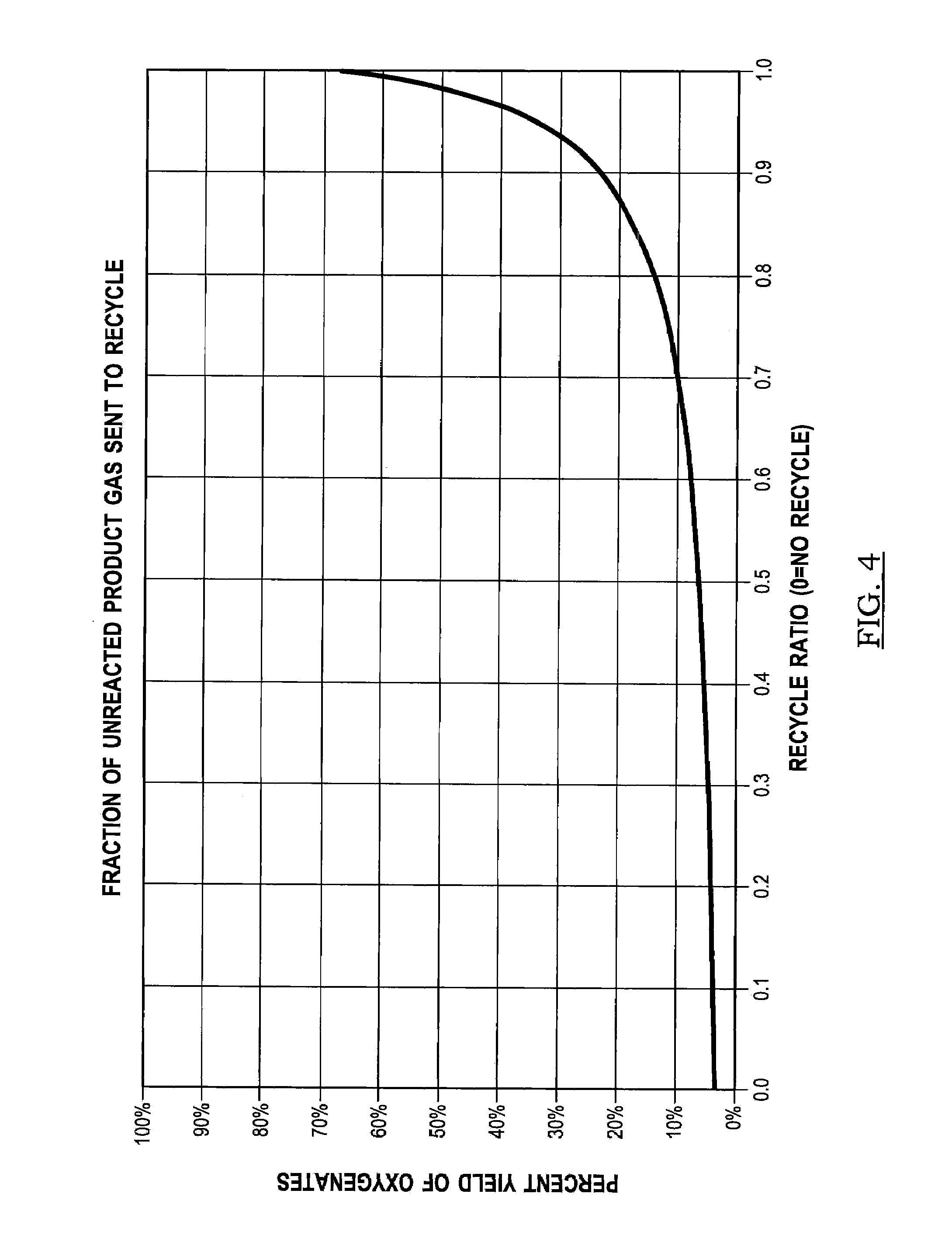Method for direct-oxygenation of alkane gases
a technology of alkane gas and direct oxygenation, which is applied in the direction of oxygen compound purification/separation, transportation and packaging, and oxygen-containing compound preparation, etc., can solve the problems of unfavorable process economics, low technology efficiency, and small enterprises with less than 2,000 tons/day capacity
- Summary
- Abstract
- Description
- Claims
- Application Information
AI Technical Summary
Benefits of technology
Problems solved by technology
Method used
Image
Examples
embodiment 900
[0091]Another process embodiment 900 is presented in FIG. 9. Air 902 is input to compressor 934 and then cooled in heat exchanger 904 for delivery to one of nitrogen separator 906 or nitrogen separator 908. Oxygen feed is stored in tank 962 and compressed with compressor 910 for introduction as an oxygen-containing feed stream into reactor system 914 after heating in heater 912. Alkane-containing raw feed 926 (at least one C1-C4 alkane, primarily methane or natural gas) is compressed in compressor 928 and blended with scrubber 920 alkane recycle for further pressurization in compressor 922 and thermal cross exchange with reactor product stream reactor 936 in heat exchanger 930. The recycle stream preferably provides a weight percentage proportion of from about 4:5 to about 20:21 of alkane in the alkane-containing feed stream to reactor 914. In one embodiment, where scrubber 920 is pressurized to a pressure on the order of reactor system 914 (see FIGS. 12 to 24B and the accompanying ...
embodiment 1000
[0092]FIG. 10 shows another process embodiment 1000 with a front end process loop essentially similar to process 900 presented in FIG. 9, but incorporating an in-situ distillation system 1002 for separating methanol in steam 1004 (for absorbent in the scrubber), purified water in stream 1006 for use in knockdown drum 1012, and generation of purified methanol 1008 and waste stream 1010. Knockdown drum 1012 provides initial separation of liquid from the reactor product stream prior to the introduction of the remainder of the reactor product stream into the scrubber.
embodiment 1100
[0093]FIG. 11 presents process embodiment 1100 for generating a methanol product stream and formaldehyde with a front end process loop essentially similar to process 900 presented in FIG. 9, but incorporating an in-situ formaldehyde distillation system 1110 and methanol distillation system 1108 to generate methanol product stream 1102. The stream from methanol distillation system 1108 cools formaldehyde distillation system 1110 overheads to separate carbon dioxide (product stream 1106) and formaldehyde (product stream 1104) in absorber-blender 1116. A recycle stream of methanol to the scrubber is drawn from methanol distillation system 1108 and chilled in chiller 1112 to provide a high-efficiency scrubber for condensing the reactor product stream. Furnace or thermal oxidizer 1114 oxidizes a purge to remove non-reactive inerts (e.g., without limitation, nitrogen) with some alkane (methane) from the reactor-scrubber process loop and thereby augment efficient use of the reactor.
[0094]W...
PUM
| Property | Measurement | Unit |
|---|---|---|
| space-time | aaaaa | aaaaa |
| temperatures | aaaaa | aaaaa |
| temperature | aaaaa | aaaaa |
Abstract
Description
Claims
Application Information
 Login to View More
Login to View More - R&D
- Intellectual Property
- Life Sciences
- Materials
- Tech Scout
- Unparalleled Data Quality
- Higher Quality Content
- 60% Fewer Hallucinations
Browse by: Latest US Patents, China's latest patents, Technical Efficacy Thesaurus, Application Domain, Technology Topic, Popular Technical Reports.
© 2025 PatSnap. All rights reserved.Legal|Privacy policy|Modern Slavery Act Transparency Statement|Sitemap|About US| Contact US: help@patsnap.com



